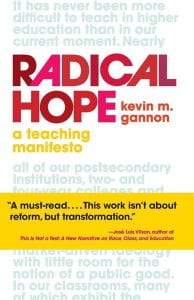Have you heard the term “ChatGPT” and wondered what everyone was talking about? Are you thinking about how artificial intelligence and machine-generated content could help you as a teacher or complicate your ability to assess true student learning? Experts from across UW-Green Bay are coming together to help you! Please read on to learn more about the sessions being offered in Spring 2023.
ChatGPT Workshop (Feb. 10 & 17, 8 – 9:30 a.m.)
We are excited to announce that the Cofrin School of Business, with support from CATL, is hosting a workshop on ChatGPT! Come learn about ChatGPT by Open AI. Join CSB faculty in this interactive workshop to experience the most advanced chatbot and discuss implications for teaching and learning.
The workshop is moderated by Oliver Buechse, Executive in Residence, Cofrin School of Business. It will be offered on two different Fridays, Feb. 10 and 17, from 8 – 9:30 a.m. in the Willie D. Davis Finance and Investment Lab on the first floor of Wood Hall. The workshops are free and open to all UWGB employees.
If you need an accommodation for any of the sessions that are a part of the “ChaptGPT Workshop” please contact Kathryn Marten (martenk@uwgb.edu).
AI, Teaching, & Learning Series (Feb. 17, Mar. 24, & Apr. 7, 11:40 a.m. – 12:30 p.m.)
UW-Green Libraries, CATL, The Learning Center, and UWGB faculty are all coming together to offer a series of three workshops on machine-generated content applications and artificial intelligence tools such as ChatGPT and their potential impacts on teaching and learning. Participants will have the option to attend this series in-person or via Zoom.
Teaching and Learning in the Time of ChatGPT | Friday, Feb. 17, 11:40 a.m. – 12:30 p.m.
UW-Green Bay instructors with expertise in artificial intelligence and machine learning will introduce us to AI-content generating tools, like ChatGPT, and their potential uses and pitfalls. Join other instructors for an engaging discussion about the impact on teaching and learning and a brief opportunity to test the tools themselves.
Writing Assignments and Artificial Intelligence | Friday, Mar. 24, 11:40 a.m. – 12:30 p.m.
ChatGPT and other text-generating tools have raised concerns among instructors whose curriculum relies upon writing assignments from creative writing to lab reports and research papers. In this session, we’ll focus on the implications of these tools on writing and pedagogy, assessment, and curriculum design.
Designing and Managing Authentic Assessments | Friday, Apr. 7, 11:40 a.m. – 12:30 p.m.
Students may inevitably use artificial intelligence and text-generating tools, but there are strategies instructors can explore and use to alleviate instructional stress around student learning. In this session, we will explore strategies for planning and developing authentic assessments to help students actively engage in their learning. This session will also offer instructors resources to help navigate the issues surrounding artificial intelligence and discuss ways to create assessments that embrace or acknowledge the use of AI and text-generating tools.
If you need an accommodation for any of the sessions that are a part of the “AI, Teaching & Learning Series,” please contact Kate Farley (farleyk@uwgb.edu).

 Are you interested in diving deeper into the topics from the 2024 IDI Keynote address by
Are you interested in diving deeper into the topics from the 2024 IDI Keynote address by 
